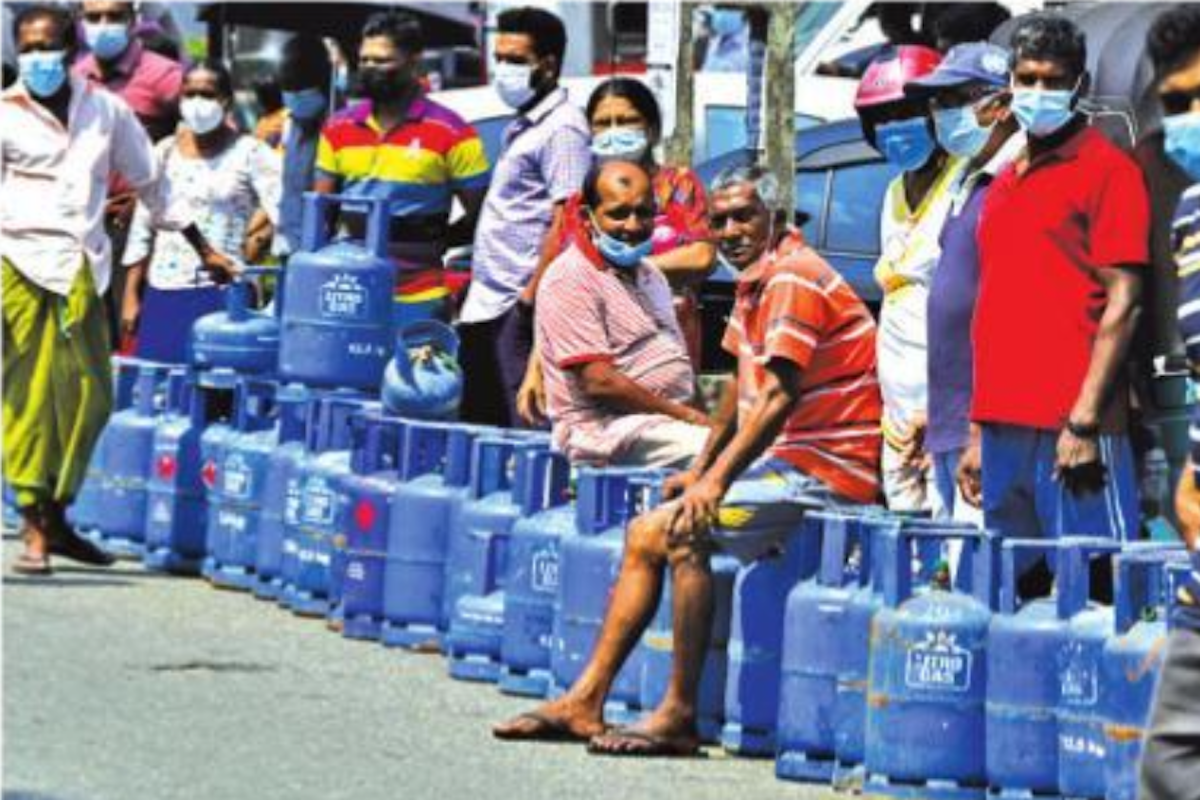Sri Lanka’s Reset
Sri Lanka has taken a decisive step toward reshaping its political and economic trajectory.
Sri Lankans have no time for work. About 62 per cent of Sri Lankan workers are daily wage earners. Properties of some members of Parliament have been destroyed by mobs.

There are queues for petrol, diesel, gas, kerosene, etc. Husbands, wives and children wait in separate queues.
Sri Lankans have no time for work. About 62 per cent of Sri Lankan workers are daily wage earners. Properties of some members of Parliament have been destroyed by mobs. Frustration has reached unprecedented heights – not even the dark days of a 33-year- long civil war produced so much frustration among Sri Lankans, who are at the end of their tether.
People are calling upon President Gotabaya Rajapaksa to go home. Tourism – a US$ 4.5 Billion industry pre-Covid-19 – has been badly hit. Says the owner of a niche-boutique hotel in Negombo, a well-known tourist resort area close to the Bandaranaike International Airport: “Sri Lanka is full of bad luck. Our industry was doing well and the euphoria of a government elected to curb corruption and increase transparency in 2015 saw our occupancy levels go through the roof. Things were looking up. Banks were happy to fund expansion and we were happy. Now we face ruin. No help at all from the government, except a moratorium on loan repayments. Two years later the banks are asking us to start repaying. We have had the Easter bombings, and then as we were emerging from that, Covid-19 struck. Coping with that, the government went all organic on cultivation. Our industry was barely able to produce US$ 100 million this year and government income plummeted. Today my hotel is near-empty, bank interest rates are rising, and the rupee has depreciated by over 100%. It is chaos.”
Advertisement
On the campaign trail in 2019, Gotabaya Rajapaksa, a military man turned bureaucrat, largely credited for steering the armed forces to a crushing victory over the much-dreaded LTTE, in 2009, promised to take Sri Lanka in a different direction. After his victory at the 2019 presidential polls, with a whopping 6.9 million votes, he proclaimed an immediate ban on the imports of agrochemicals. Farmers were aghast knowing that a shift to organic farming would require their lands to remain uncultivated for at least three years. They took to the streets across the country, thus fuelling protests in urban areas, including Colombo.
It is argued, in some quarters, that President Gotabaya was told that the financial position in terms of foreign currency reserves made it impossible to spend as much as USD 400 million, on chemical fertilisers. The government put into action an audacious plan to mislead the public on the real financial position in the hope that funds could be raised sub- sequently for the purchase of fertiliser, and crop decreases during the Maha and Yala seasons would be manageable. This misadventure saw the Sri Lankan economy nosediving. Diminishing foreign reserves were used to settle a sovereign bond payment to the tune of USD 500 million despite calls from Opposition members to go for a rescheduling of debt before the country had to default.
Little surprise the people are now calling for a government without the members of the Rajapaksa family. The entire Cabinet, save the Prime Minister Mahinda Rajapaksa, had to resign en masse. Protesters were not happy with that response. They want- ed President Gotabaya also to resign. One of President Rajapaksa’s confidants, Ali Sabry, was appointed as Finance Minister but his visits to the IMF did not yield the forex needed for the purchase of petrol, diesel, kerosene, cooking gas and heavy fuel for power generation. India stepped in with immediate relief, and Indonesia sent medicines. Immediate neighbours including Bangladesh answered Sri Lanka’s plea for assistance.
Thanks to the callous treatment meted out to the Muslim community in the past, oil-rich West Asian nations did not offer any help. Other nations were willing to send humanitarian assistance but remain concerned about Sri Lanka’s failure to address allegations of war crimes, accountability, return of lands and reparations despite repeated almost annual assurances to the contrary, the international perception and that of the Tamil community being that ‘nothing’ has been achieved.
The appointment of a Prime Minister who has served no less than five times previously has been made out to be an interim measure to defuse tensions. However, the people are protesting opposite his residence as well. A well-read man, with a reputation for political survival, Ranil Wickremesinghe was immediately perceived as a man wheeled in by the principal puppeteer Basil Rajapaksa to create a ‘safe exit strategy.’ It was interesting that there was no reference to an ‘honourable’ exit.
The attempt to portray Wickremesinghe, who lost his own seat at the last general election but entered parliament via the National List thanks to Sri Lanka’s quirky electoral laws – as a national-consensus appointee to forge a broad alliance of all political parties, fell by the wayside when the Leader of the Opposition – another dynastic politician – Sajith Premadasa refused to be part of any government unless a time- the frame was set for President Rajapaksa’s resignation. Sri Lanka’s economy is in grave danger with government debt amounting to approximately US$ 32 billion (private sector debt being approximately USD 18 billion) and foreign exchange inflow becoming scarce.
The IMF is still perusing Sri Lanka’s proposals, and so is its former colonial master, the UK, before deciding on some assistance. The Rajapaksas’ leaning toward China has been frowned on by the West, and there is little doubt that there is international pressure – covert perhaps – for President Rajapaksa to resign. The future appears uncertain not only for the Rajapaksa dynasty but also for the people, who are worried about a looming food crisis come August 2022 whoever will be in power – the Rajapaksas, Wickremesinghe or anyone else.
Advertisement